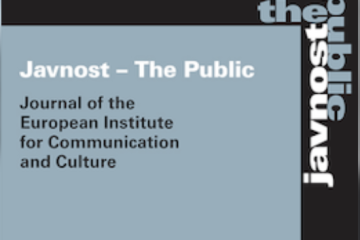Prof. Lilleker was invited to be keynote speaker and drew on some of the data from the Rotherham storytelling cafes as well as responses to images posted to commemorate Silverwood colliery, a pit in the heart of Maltby near Rotherham. The talk centred on nostalgia, a feature of the memorialisation of heavy industry within our communities. Despite the dangerous and challenging work, those who worked in mining and steel industries remember the pride in their jobs, the respect they held in the communities and as a productive force within the nation, and the camaraderie they enjoyed as part of a large workforce. The solidarity of trade unionism, particularly in the fight for greater rights and the various battles to prevent closures of the works and mines, similarly was remembered with pride: with negative comparisons to the more atomised communities that exist 30-40 years after the mines and steelworks closed. The nostalgia for these times leads to susceptibility for broader narratives about the past, where the strength and unity of the communities, and the certainty and security of jobs in these heavy industries, can be linked to national greatness. These past times are also ones of traditional gender roles, non-political correctness and other issues that have become polarizing as part of the so-called culture wars. Post-industrial communities often feel looked down on due to them being on the ‘wrong’ side of culture wars but can develop a pride in their traditional values and perspectives which make them susceptible to populist and right-wing rhetoric. Such factors can explain the strength of support in post-industrial regions, especially those that remain devoid of new investment, for the British National Party (who won two seats at the 2009 European parliament for Yorkshire & the Humber and North West regions and gained 10% of the vote in 2012 and 2015), UKIP (20-30% 2012-15), the Brexit party (17.2% in 2019) and Reform (30% in 2024).
A separate paper, led by Dr Maike Dinger following the election theme of the conference, focused on the Red Wall seats. Noting that the Red Wall is a homogenising concept which ignores differences and a construct of Conservative campaign strategists seeing these seats as fertile ground due to their values, support for Brexit and antipathy in 2019 to Corbyn’s internationalist socialism, the paper explored the mediated 2024 election campaign within our case study regions. The campaign offered little tailored messages but was largely a national campaign: the populist Reform party alone offered a message that would resonate promising to ‘revive, regenerate and revive’ Rotherham. Labour’s vote was largely unchanged, actually falling slightly in some areas. The rebuilding of the Red Wall was more a feature of the collapse of support for the Conservatives with voters opting for Reform or Labour to remove them from government. The election was not mentioned at all in discussions in post-industrial communities. Local politics featured, such as poor bus services, ill-planned redesigns of roads and the housing of asylum seekers and migrants. But criticisms were levelled at the councils, Westminster politics appeared as an irrelevance within the communities with the exception of the negative impacts of Thatcher’s economic reforms that precipitated the death knell for heavy industries. Hope of change, alongside a change in government, appeared non-existent suggesting an entrenched alienation from national politics and the Labour party.


